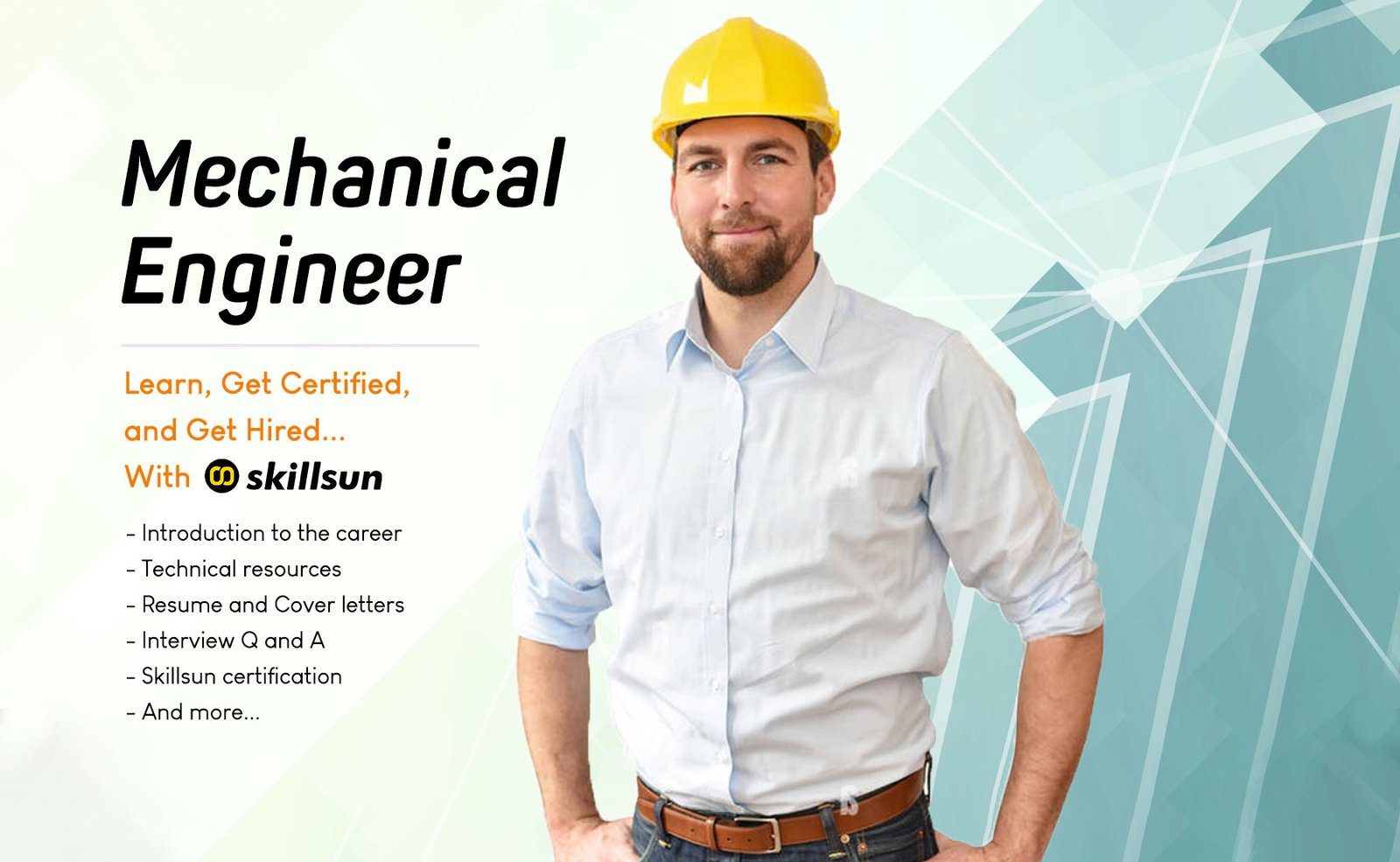How to become a Mechanical Engineer
Instructor
Skillsun
- Description
- Curriculum
- FAQ

Module 1: Introduction to Mechanical Engineering
Module 2: Researching Your Chosen Career
Module 3: Writing a Great Resume
Module 4: Crafting a Compelling Cover Letter
Module 5: Networking
Module 6: Interview Preparation
Module 7: Interview Skills
Module 8: Follow-up and Thank-You Notes
Module 9: Negotiating Your Job Offer
Module 10: Starting Your New Job
Module 11: Continued Professional Development
Who is this course for?
This course is for anyone who wants to pursue a professional career or advance their existing skills.
How long is the course?
The course is designed to be self-paced and flexible, with approximately 70 hours of content.
Is there a certificate of completion?
Yes, students who complete all the modules and pass the final exam will receive a certificate of completion.








